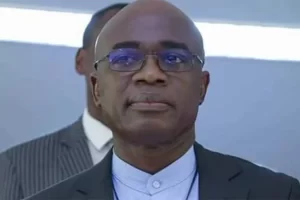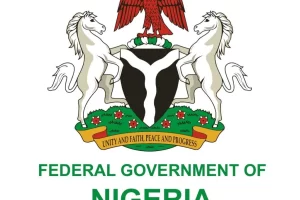One of the sectors that are supposed to be felt even more is health because of its role in the overall development of any nation. But in Nigeria, this does not seem to be the case.
According to KPA, a business development agency report on major challenges in the healthcare sector in Nigeria, the healthcare is mainly driven by the public sector.
According to the report, 66 per cent of Nigeria’s 34,000 health facilities are owned by three tiers of government: federal, state, and local combined. Meanwhile, the private sectors still contribute substantially to the provision of health services.
Secondary and tertiary healthcare facilities are mainly located in urban areas, while primary health facilities are prevalent in Nigeria’s rural areas.
KPA also reports that one of the major challenges in the healthcare sector in Nigeria is that people are not aware of the current health issues they have.
Most Nigerians rely heavily on medical opinions from unqualified individuals, such as authoritative family members.
Therefore, patients do not feel empowered to learn more about their health and they are not actively engaged in the decision-making process of improving their well-being.
Furthermore, due to the lack of clarity around what illnesses are plaguing citizens, many patients can be misdiagnosed especially when receiving care at facilities with inadequately trained staff.
KPA report says because there is little investment in the workforce, misdiagnoses are so common; therefore, many Nigerians do not seek the medical expertise of a doctor until their condition significantly worsens.
In order to help Nigerians get medical attention which some populace cannot afford, Dr Loretta Ogboro-Okor, Founder Loretta Health Initiative (LHI), says it is important to bring free health care to Nigerians, as she has done in Edo.
“We have with Loretta Health Initiative (LHI) taken basic and preventive healthcare straight to the core of our communities across Edo State.
“We have been in all the three senatorial districts; in hard to reach terrains, markets and town halls, giving free consultations, screening for hypertension, diabetes, breast pathologies and eye problems.’’
Ogboro-Okor, who is also Edo State 2024 Governorship Aspirant, said following their offer of free medications, prescription glasses and referrals, continued eye checks happen every Friday at the Benin office on Sakponba road.
“We have had our outreaches in Auchi, Afuze, Otuo, Saboginda-Ora, Ubiaja, Oka, Benin City Museum, Oba Palace and to mention a few.
“With an average of 356 to 400 people seen at the different locations, our records show how we have seen 10,000 people and counting,” she said.
On the type of the free Primary Health Care (PHC) offered so far, she explained they have taken basic and preventive healthcare as well as healthcare advocacy in the local languages straight to the core of the communities across Edo State.
“We have been in all the three senatorial districts; in hard-to-reach terrains, markets and town halls amongst other locations.
“Demographic Index Value Location of person seen is as follows with the youngest a baby of 2 months old and oldest 101 years old in Ubiaja.’’
Ogboro-Okor said the commonest non-communicable condition seen is Hypertension across all locations and pregnant women seen so far 240 were women as most of these numbers are from the villages not cities.
“On this journey, we have seen persons with ridiculously high blood pressure that defy what medical science says about the basic principles of the physiology of being alive.
“Once, we saw figures as high as 280/180 mmHg in a long-distance vehicle driver who said he was just passing by, heard about the programme, and decided to walk in.
“We had to explain to him that he needed to take medications as an emergency to get the blood pressure down. That it was unsafe for him and other road users to allow him to get behind the wheels on that day,” she said.
Other health sector stakeholders agree that bringing in private sector energy to support public sector efforts in key to a viable health sector for Nigerians.
“The reality in Nigeria is that we have a mixed health system where patients navigate for healthcare between the public and the private sector. This demands better strategic integration between public and private providers,’’ says Vivian Ihekweazu.
Ihekweazu is the Managing Director of Nigeria Health Watch, a not-for-profit health and communication advocacy organisation.
At the Future of Health conference organised in Lagos, the Coordinating Minister of Health and Social Welfare, Prof. Ali Pate also underscores the role being played by the likes of LHI
The conference had as its theme: “The Private Sector as a Catalyst for a Resilient Health System’ organised by the Nigeria Health Watch.
“Health investments are important as a driver of growth and prosperity.
“But at the moment, there’s a gap between where our health outcomes as a people are and where we should be, given the tremendous resources that we have in human and material resources as a country”, he said
Special Adviser to the President Bola Tinubu on Health, Dr. Salma Ibrahim-Anas, also expressed a similar position.
“Achieving a resilient health system requires a multi-sectoral and multifaceted approach where the public and private sector collaborate and synergise to accelerate progress towards this goal. (NANFeatures)
**If used please credit the writer and News Agency of Nigeria.
Source
Disclaimer: No copyright infringement intended. All rights and credits reserved to respective owner(s).



















Add Comment